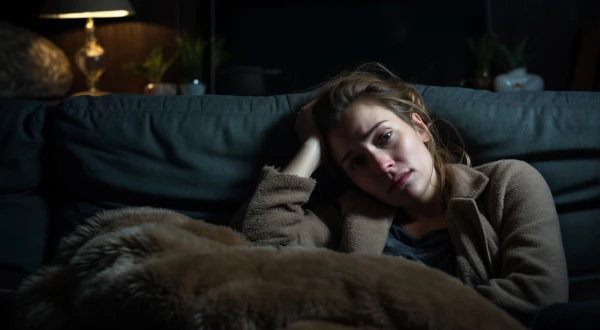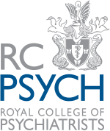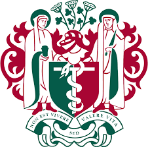Attention deficit hyperactivity disorder (ADHD) is a neurodevelopmental condition that affects individuals across the lifespan. ADHD presents with core symptoms of inattention, hyperactivity, and impulsivity, which can significantly impair academic achievement, occupational functioning, and social interactions. While much attention has been given to these hallmark features, another area of growing concern is the relationship between ADHD and sleep problems.
Many individuals diagnosed with ADHD report difficulty falling asleep, trouble staying asleep, and a tendency to wake feeling unrefreshed. These sleep disturbances are often overlooked in clinical assessments or attributed solely to behavioural factors. This raises an important question: are sleep problems a natural part of ADHD, or are they caused by the lifestyle and habits often linked to the condition? This article explores the connection between ADHD and sleep disturbances, examining potential causes, associated disorders, and strategies for effective management.
How does ADHD affect sleep?
The symptoms of ADHD often contribute directly to sleep disruption. One of the primary challenges is difficulty initiating sleep, which is due to hyperactivity and restlessness. Individuals with ADHD frequently experience racing thoughts, physical agitation, and an inability to relax. This physiological and mental overstimulation interferes with the natural progression toward sleep, delaying its onset even when the individual feels fatigued.
Impulsivity and poor self-regulation also present barriers to maintaining a consistent bedtime routine. Establishing regular sleep-wake cycles requires predictability, discipline, and sustained attention, all of which are commonly impaired in individuals with ADHD. Children may resist bedtime due to a lack of structure or overstimulation, while adults may struggle to disengage from evening activities. The tendency to hyperfocus, especially on stimulating content such as video games or digital media, can further prolong alertness and delay sleep onset.
These behaviours not only shift bedtime later but also impair the quality and continuity of sleep. Fragmented sleep and shorter total sleep duration are frequently observed in individuals with ADHD. For children, this may result in increased irritability and hyperactivity during the day, while adults often report cognitive fog, reduced productivity, and poor emotional regulation. Although the manifestations may differ across age groups, the underlying mechanisms remain similar.
Common sleep disorders for people with ADHD
Several distinct sleep disorders are more frequently observed in individuals with ADHD, often occurring with greater intensity and complexity than in the general population.
Insomnia: Among the most common is insomnia, which involves difficulty falling or staying asleep. Insomnia in the ADHD population often results from a combination of mental hyperactivity and inconsistent sleep behaviours, and it is more prevalent than in the general population.
Delayed Sleep-Wake Phase Disorder (DSWPD): Delayed sleep-wake phase disorder (DSWPD) is another common concern. Individuals with DSWPD experience a significant delay in the timing of sleep onset and wake time. This misalignment with societal norms, such as school or work schedules, can result in chronic sleep deprivation. DSWPD appears to be more common in those with ADHD, especially adolescents and young adults, who naturally lean toward later circadian rhythms.
Restless Legs Syndrome (RLS): Restless legs syndrome (RLS) is also disproportionately reported in people with ADHD. The constant urge to move interferes with relaxation and sleep initiation, disrupting nighttime rest. The association may be linked to dopaminergic dysfunction, a biological feature common to both RLS and ADHD.
Sleep-Disordered Breathing (SDB): Sleep-disordered breathing (SDB), including obstructive sleep apnoea (OSA), is also linked to ADHD. While more typically associated with other risk factors such as obesity, there is evidence suggesting a higher prevalence of SDB among children with ADHD. This condition leads to repeated interruptions in breathing during sleep, severely fragmenting the sleep cycle and reducing restorative sleep.
Impact on Daily Functioning and Diagnosis: Sleep disturbances in individuals with ADHD frequently exacerbate deficits in attention, mood regulation, and executive function, reinforcing a cyclical pattern of impairment. Poor or not enough sleep makes ADHD symptoms worse during the day, which then leads to more trouble sleeping at night. These sleep problems are often overlooked or wrongly blamed on ADHD. As a result, other related sleep disorders that need proper treatment may be missed.
ADHD medication and sleep
Stimulant medications, such as methylphenidate or amphetamine-based formulations, are used for ADHD treatment. These medications are highly effective at improving core symptoms during the day, particularly attention, impulse control, and executive functioning. However, their influence on sleep is complex and can be both beneficial and detrimental, depending on individual response and dosing strategies.
A well-documented side effect of stimulants is difficulty initiating sleep, especially when taken in the late afternoon or evening. These medications increase the availability of dopamine and norepinephrine in the brain, enhancing alertness and cognitive focus, effects that are counterproductive when trying to fall asleep. Some individuals experience shortened sleep duration or more frequent awakenings, potentially offsetting the benefits seen during the day.
In some people, especially children, properly managed stimulant medication can actually help with sleep by reducing evening hyperactivity and restlessness, making it easier to fall asleep. For those who don’t respond well to stimulants, non-stimulant options like atomoxetine or guanfacine can be helpful. These medicines have calming effects, which can improve both ADHD symptoms and sleep quality.
ADHD and sleep: behavioural and lifestyle factors
Behavioural and environmental factors significantly contribute to sleep disturbances in individuals with ADHD. Irregular routines, excessive evening screen time, and inconsistent sleep-wake schedules are common and can disrupt circadian rhythms, delaying sleep onset and reducing overall sleep duration. These disruptions are often exacerbated by cognitive and physical arousal caused by ADHD. Such behavioural patterns can cause long-term sleep deficits and worsen daytime functioning.
Poor sleep hygiene is also prevalent, as impulsivity and inattention may interfere with the calming pre-sleep routines. Habits such as late caffeine intake, inconsistent bedtime practices, and overstimulating activities before bed can make it harder to sleep well. The tendency to hyperfocus on engaging tasks, particularly digital media, further delays sleep initiation. Over time, these factors may contribute to chronic sleep insufficiency and increased emotional dysregulation.
Structured behavioural strategies can improve sleep regulation in ADHD. Consistent routines, reduced evening stimulation, and environmental adjustments support better sleep hygiene. Evidence-based interventions like cognitive-behavioural therapy for insomnia (CBT-I) and parent-led behavioural approaches have effectively promoted more stable and restorative sleep patterns. Integrating these approaches into ADHD treatment plans may lead to improvements in both sleep quality and overall symptom management.
Assessment and diagnosis of sleep problems in ADHD
Thorough assessment is essential for distinguishing between sleep disturbances directly associated with ADHD and co-existing but independent sleep disorders. Clinicians begin with a detailed clinical interview, often supplemented by sleep diaries, which document sleep patterns over several weeks. These tools help to identify irregularities in sleep timing, duration, and quality. For more objective analysis, clinicians may recommend actigraphy, a non-invasive method that tracks movement and light exposure to infer sleep patterns. In more complex or severe cases, polysomnography (overnight sleep studies) may be indicated to rule out disorders such as obstructive sleep apnoea or periodic limb movement disorder.
A correct diagnosis is important because it guides the choice of treatment. For example, insomnia related to behavioural issues may respond to cognitive-behavioural therapy for insomnia (CBT-I), whereas sleep apnoea requires an entirely different approach, which could include continuous positive airway pressure (CPAP) therapy, although non-CPAP treatment options for sleep apnoea are available. Collaboration among psychiatrists, sleep specialists, and primary care providers ensures a comprehensive approach to care, particularly in complex cases where symptoms overlap.
Living with ADHD and sleep problems
Managing sleep problems in the context of ADHD requires a realistic, supportive, and individualised approach. Families, schools, and workplaces all play a role in reinforcing consistent routines and promoting environments conducive to rest. Simple but effective behavioural strategies include setting fixed bedtimes, limiting screen exposure before bed, and creating calming pre-sleep rituals. These problems are common, but with the right approach, they can be managed. Treatment options may include adjusting medications and using behavioural therapy. With proper care, individuals with ADHD can see real improvements in both their sleep and daily functioning. Focusing on routine, education, and support can lead to a better overall quality of life.
Addressing ADHD and sleep disorders
There is now strong evidence that ADHD and sleep problems are closely connected. Whether these disturbances arise from core symptoms, behavioural patterns, co-existing sleep disorders, or medication side effects, the result is often impaired daily functioning. We also have a blog on ADHD and its potential connection to insomnia which you may find useful. Recognising the signs of sleep difficulties and addressing them with appropriate, evidence-based strategies can show significant improvements, not only in sleep but also in the core symptoms of ADHD.
If you or anyone you know is experiencing sleep difficulties associated with ADHD, it is important to seek expert guidance. Dr Dipesh Mistry specialises in diagnosing and treating sleep disorders. We provide assessments and personalised treatment plans that address both sleep concerns that are associated with ADHD. Our multidisciplinary approach ensures that each patient receives tailored, evidence-based care that supports improved sleep and overall functioning. Contact us today to begin your path to better sleep and more refreshed, active days.










